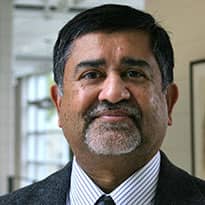The only way we can reduce human conflict is to understand the human quest for liberation, knowledge, and finding the answers to the fundamental questions that have troubled us—Who are we? Why are we here? Where do we go from here?—is to acknowledge that we can access answers to these questions using a variety of means, under the guidance of a variety of spiritual and religious leaders, and as adherents to any of the world's faith groups.
The other facet of this argument is that those who claim God for themselves, or assert that their religious faith is the only one that paves the way to God contribute to human suffering and conflict by denying others the right to follow their own spiritual instincts, their God-given freedom to probe the universe as they wish. They do so by imposing hierarchies that categorize people as infidels or believers, saved or lost, devil worshipers or God-followers, and heathens or religious people. These exclusivist and monopolistic claims to God then pave the way to predatory proselytism, and the denial of agency to others—the "adhikara" (authority or ownership) and "ishta" (desired, liked)—guiding principles that shape the Hindu pursuit of transcending the mundane.
This argument is not new. In fact, I wrote a short piece for United Press International's "religion and spirituality forum" in 2006, which I think can describe why religious pluralism is essential to mitigating conflict in the world. Before we get there, we have to clarify what pluralism means. Swami Vivekananda said, "We not only tolerate, but we Hindus accept every religion, praying in the mosque of the Mohammedans, worshipping the fire of the Zoroastrians, and kneeling before the Cross of Christians, knowing that all the religions, from the lowest fetishism to the highest absolutism, mean so many attempts of the human soul to grasp and realize the infinite, each determined by the conditions of its birth and association, and each of them marking a stage of progress" (The Complete Works of Swami Vivekananda, pp. 331-32). Vivekananda was stating something a hundred years before what Professor Diana Eck of Harvard and the Pluralism Project call necessary conditions for the practice of and belief in pluralism. Pluralism, for her, has to be "the energetic engagement with diversity . . . , the active seeking of understanding across lines of difference . . . , the encounter of commitments . . ." arrived at through dialogue.
In 2006 we had a visitor at Longwood University where I teach. He was a holocaust survivor. Jay Ipson, President and Executive Director of the Virginia Holocaust Museum, came to talk to our students about love, hate, and bigotry. He began by asking the luncheon audience what it was that made Germans hate the Jews. One person said that maybe Germans learned it at home; another said that the media played a role; and yet another offered the hypothesis that maybe they learned it at school. I suggested that it was religion that was at the bottom of that hatred. He nodded his head, looked around, and asked us to consider that fact.
In the audience were a Presbyterian minister, a Catholic priest, and Christians of other denominations. People uncomfortably shifted in their chairs, and one person said that religions don't teach hate but people misuse religion. Is that true, Ipson asked, and he himself seemed to indicate that it might be so. Some others pointed out that there is much in religious literature that is problematic, if not hateful.
Ipson's story of survival in a Lithuanian Jewish ghetto, and of escape with his father and mother from the ghetto, while the rest of his family was sent to the concentration camps and to their deaths, made us all acknowledge the real import of religious discrimination. Ipson still retains a strong German/European accent but has a fine command of American colloquial English. His talk was precise, and he avoided the politically correct clichés that many modern speakers use to soften the horrors of the past, and the vulgarities of the present.
The holocaust survivor's story is important not only in the context of continuing anti-Semitism but it can also provide the context for pluralism, the lessons we can learn from Hinduism, and the concerns of Hindus, Native Americans, and others about the effects of predatory proselytism—aggressive and manipulative efforts at converting others through force, fraud, seduction, and lies.





